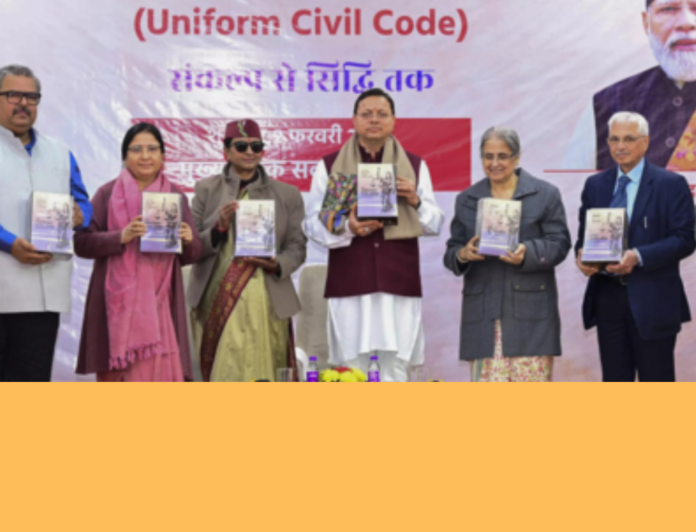The Uttarakhand Assembly introduced legislation concerning the Uniform Civil Code (UCC) during the state Assembly session today. Chief Minister Pushkar Singh Dhami, spearheading this initiative, stated on Monday that the proposed UCC aims not only to benefit all sections of society but also to align with Prime Minister Narendra Modi’s vision of ‘Sab ka Saath, Sab ka Vikas’ and ‘Ek Bharat, Sreshtha Bharat.’
A government-appointed panel, chaired by retired Supreme Court judge Ranjana Prakash Desai, has prepared a comprehensive report. Throughout these engagements, approximately 60,000 individuals were involved in discussions to aid in the formulation of the draft.
Among the various provisions outlined in the UCC are the prohibition of polygamy and child marriage, establishment of a standardised marriageable age for girls across all religious denominations, and uniform procedures for divorce. These recommendations, aimed at promoting gender equality and social harmony, are slated for discussion during the special four-day assembly session, which commenced yesterday and will continue until Thursday.
The draft of the Uniform Civil Code (UCC) encompasses various aspects of civil life, including recommendations regarding inheritance rights, compulsory marriage registration, and an elevated marriageable age for girls, enabling them to pursue education before getting married. Additionally, couples who fail to register their marriages will be ineligible for government benefits, in what is seen as a push for legal documentation.
If implemented, Uttarakhand will become the first state in post-Independence India to adopt the UCC, following the example of Goa, where it has been in operation since the Portuguese colonial era.
The proposed UCC for Uttarakhand transcends religious boundaries by granting adoption rights to all, including Muslim women. It aims to prohibit practices such as halala and iddat (Islamic practices that a woman must undergo after divorce or the death of her husband), promote the acknowledgment of live-in relationships, and streamline adoption procedures.
Once the proposed UCC is enacted, live-in relationships will need to be legally registered. Legal experts argue that registering such relationships would be advantageous for both men and women.
Other notable features of the UCC include equal property rights for sons and daughters, the elimination of distinctions between legitimate and illegitimate children, and equal treatment for both adopted and biological children. In the event of a person’s demise, the proposed UCC ensures equal property rights for the spouse, children, and parents, departing from previous laws that limited such rights.


